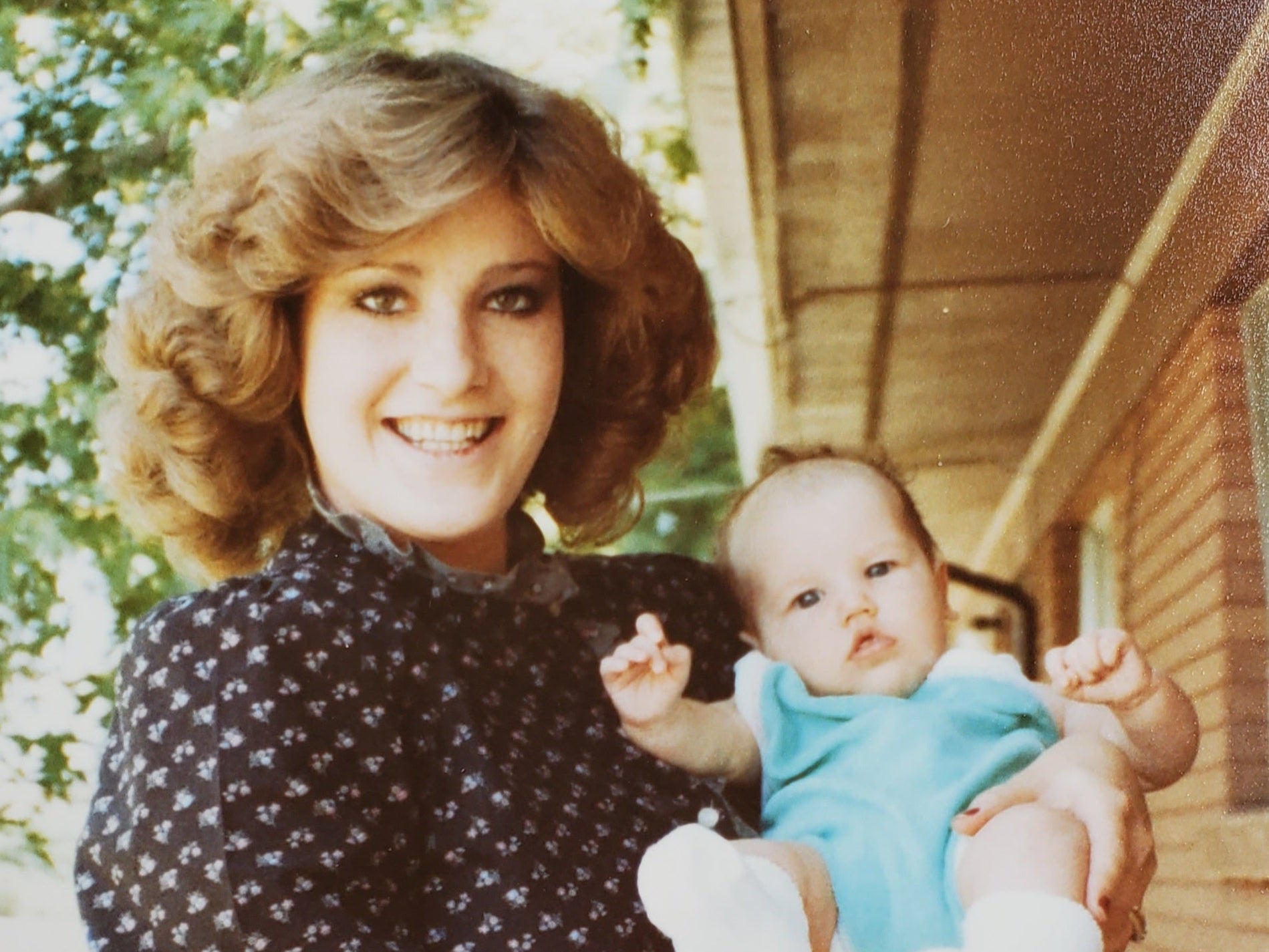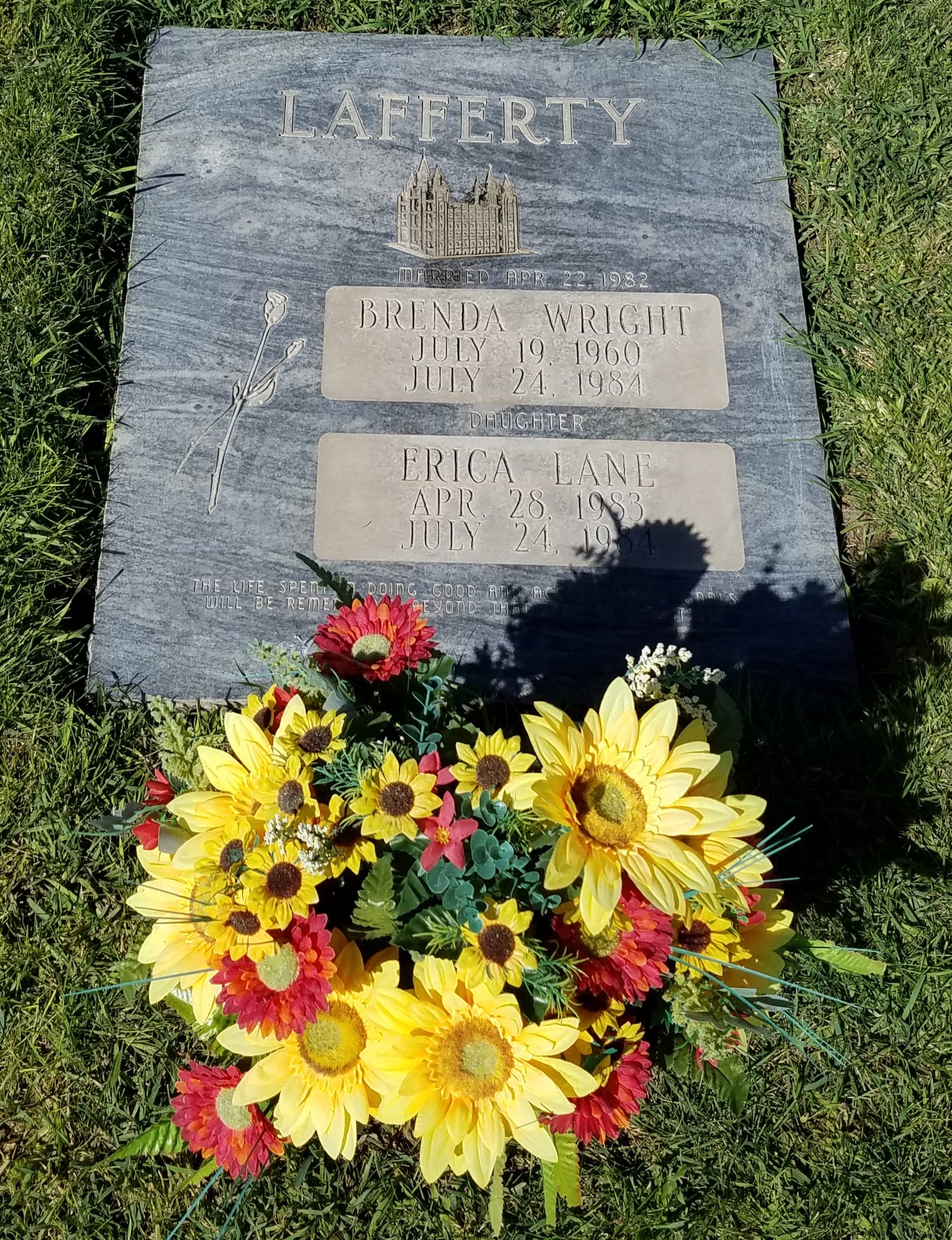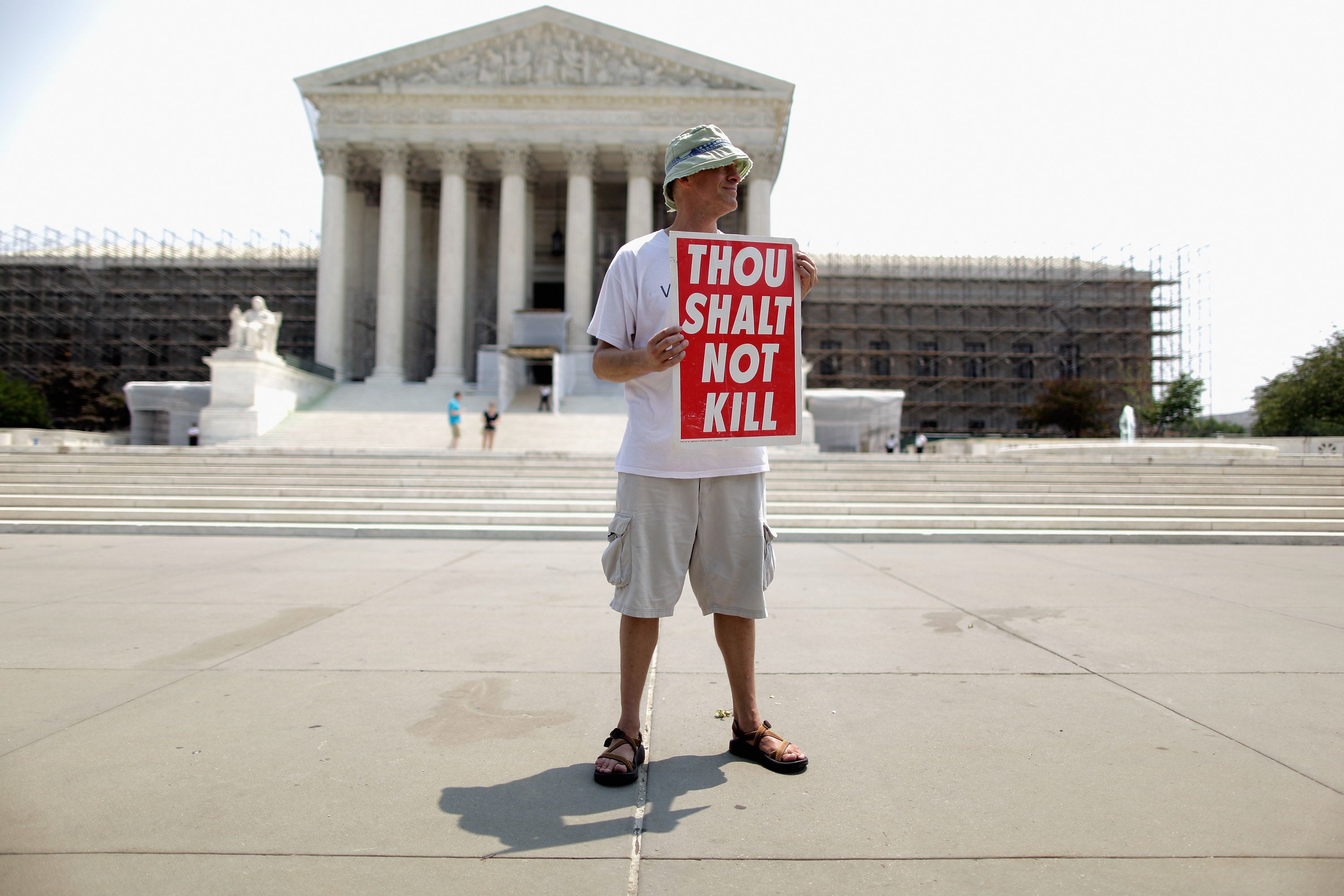Republicans in ultra-conservative Utah introduce bill to outlaw the death penalty
A unlikely alliance of victims’ families, liberal and libertarian activists, and conservative legislators are pushing for repeal, Josh Marcus writes


At this point, roughly speaking, about one US state a year decides to end the penalty. So which state is mostly likely to be next in 2022? The answer might surprise you.
Most coastal and liberal-leaning states have already outlawed the practice by law or executive moratorium, leaving 24 states, mostly in the South and Mountain West, with active execution chambers. In 2021, against all odds, Virginia became the first state in the South to ban it, a watershed moment given the state’s past as a site of racial violence and prolific executions and lynchings.
Perhaps just as unlikely, Utah could be 2022’s next big death penalty headline. It would a dramatic political moment in a deep red state so conservative it went for Donald Trump by more than 20 per cent in 202. Nonetheless, an unprecedented coalition of bipartisan legislators and business leaders have been pushing for years in the state to end executions. On Tuesday, Utah’s legislative session began, and lawmakers took up the bill, HB 147, which would replace executions with tough life sentences.
It one was family’s story that changed the momentum of the death penalty in the state. In 2016, when it became clear that her mother was about to pass away, Sharon Wright Weeks drove from her home in St George, Utah, to Twin Falls, Idaho, for a final visit on Valentine’s Day. They were able to spend a meaningful day together, and Sharon held her mother’s hand as she took her final breath, but this moment was soon disturbed.
“Within 30 seconds the thought popped into my mind that my mother did not see justice for her daughter and granddaughter’s murder,” Ms Weeks, 53, told The Independent in December. “I was so angry, at myself, for allowing that to come in and dirty the beautiful experience that I was having. It’s just at that point that I thought this death penalty process eclipses everything in your life.”

In July 1984, when Ms Weeks was just 15, her sister Brenda Wright Lafferty and Brenda’s 15-month-old daughter Erica were brutally murdered by Brenda’s brothers-in-law Ron and Dan Lafferty. Dan Lafferty was sentenced to life in prison, while Ron was given a death sentence. More than 30 years after the original crime, the legal process, and the pain Sharon and her family were feeling, still wasn’t over.
Ron Lafferty had multiple trials at the state level, plus seemingly interminable appeals and competency hearings. With each new development, the media returned to the gruesome particulars of the murder, taking a macabre delight in covering the front page with photos and details about the men who had irreversibly harmed her family.
“It never goes away. It’s always there. It just comes into your mind. You have no control over it,” Ms Weeks said. “The vast majority of people have no idea what victims’ families are going through, going through this appellate process. It’s absolutely horrendous, and it’s mean.”
She saw the hard work that prosecutors and jurors alike were putting into trying to convict (and re-convict) her sister’s killer, but Ms Weeks reached the point where she felt that the system prevented even their best intentions of justice from being anything but “a big fat lie.” The system seemed to her committed neither to execution, nor to speedy justice, nor to the wellbeing of the families caught in the middle. It simply ground on towards meaninglessness.
In 2019, Ron Lafferty died of natural causes at age 78, after 34 years in prison, one of the longest-serving death row inmates in the country. By then, he was a sick old man, and Sharon wasn’t even sure she wanted to see him executed anymore.
“It would have been devastating to me, to have the government wheel a man in a wheelchair and shoot him. That would have devastated me,” she said. “That would have complicated and compounded an already healed portion of my loss.”

Her struggle for immediate justice may be over, but Sharon Wright Weeks is now fighting for a bigger kind of change. Her persistent advocacy, alongside Utah legislators, activists, and prosecutors, may mean Utah is the latest to outlaw the death penalty altogether. And against all odds, it looks like they have a decent chance of success, a watershed development that would mean the US officially has more states which have outlawed or halted capital punishment than those which still use it.
After her mother’s death, Ms Weeks arranged a meeting with her state representative V Lowry Snow, a conservative former prosecutor. Rep Snow credits this meeting with changing his mind about capital punishment, and he’s now one of the sponsors of HB 147, which would replace the death penalty with a 45-year life sentence.
“She expressed to me the trauma her family had been through, not just in terms of his two trials but the promise, the representation that was made by the state that he should be put to death, and now we were at 33, 34 years later, and it still hadn’t occurred,” he said. “In between, every time there was anything that happened in terms of him exercising his appellate rights or rehearing rights, or the second trial that the family had to go through, they had to relive again the tragic loss of her sister as well as her sister’s infant daughter.”

The more he thought about the death penalty, the more the punishment unsettled him. As a pro-life legislator, he couldn’t abide by a punishment where the government intentionally kills. As a representative who had previously worked on other criminal justice policies, he couldn’t bear the well-documented innocence epidemic on death row.
“The reality is, of our system, in our state, in other states, it’s not a perfect system,” he added. “But when we impose a death sentence, it is a perfect sentence. There’s nothing that is left after a person’s life is taken. It’s final. There is no way to correct that.”
He wasn’t the only one getting behind the effort to outlaw the death penalty in Utah. State senator Dan McCay, another conservative, signed on to sponsor the repeal and replace bill in the upper house, joining advocacy groups ranging from the Utah ACLU to the libertarian think tank the Libertas Institute, which have both spent years pushing to end capital punishment.
Utah only has seven people on death row, and it hasn’t executed anyone since 2010. Despite barely carrying out executions, Utah has still has spent millions on death penalty prosecutions in that time. The ballooning costs of capital punishment are just one of the many reasons conservatives in the state are rallying behind ending executions, according to Libertas Institute president Connor Boyack.
“The death penalty is a very interesting policy. People come at it from so many different angles,” he told The Independent. “The people who oppose capital punishment have a diverse range of reasons that led them to that, for conservatives in particular.”
For some, executions are the ultimate kind of big government overreach, and one fraught with error.
“Many conservatives like myself are conceptually OK with capital punishment from a religious or moral or ethical angle, it’s just that we distrust the government to do that effectively and not kill innocent people along the way,” he added. Business leaders in the state and beyond have also taken notice.
“As I have learned more about the death penalty, I have become convinced that its disregard for the value of human life, its potential to execute innocents, its stark racial disparity and its exorbitant cost mean that it has no place in a modern society,” said Jared Smith, cofounder of Qualtrics, one of the state’s highest profile tech companies.
He, along with more than 240 other business leaders, has signed onto the Responsible Business Initiative for Justice’s campaign to end the death penalty. Other notable signatories like Virgin founder Richard Branson have decried capital punishment in Utah.
“Utah has a historic opportunity to do away with a deeply flawed and inhumane form of punishment,” Mr Brandon said in a statement released Tuesday. “By speaking up against the death penalty, business leaders join a broad movement that also includes a growing number of prosecutors and victims’ families. They know first-hand that the death penalty fails to deliver justice. It’s time to end it for good.”
Most astoundingly, even county officials and the head prosecutor in Utah County, the state’s most conservative region, have come out against capital punishment, which the Utah ACLU’s Marina Lowe believes is a first in recent state political history.
“I think this is quite remarkable,” she said. “There has been this sort of groundswell of interest.”
Recent polling from the Deseret News indicates that this feeling has spread beyond just the statehouse, with Utahns now split about 50-50 on the death penalty, after decades of unchanging supermajority support.
Compared to other states with high-profile conversations about the death penalty going on, such as Oklahoma, discussion of the frequent racism of capital punishment hasn’t been at the forefront in Utah, which has a mostly white population.
“Because of the composition of our population, it’s probably less of a bullet point than it might be in other states,” Ms Lowe said.
At this point, many of the states which retain executions are in the South and have large Black populations, as well as a troubled history of using executions as a form of explicit racist violence. Utah has its own dark chapters of Ku Klux Klan terror and lynching, but the political dynamics here have provided a striking example of how places with very different politics can arrive at similar conclusions for totally different reasons.
That isn’t to say death penalty repeal is a done deal in the state. More and more people may be opposed to capital punishment in Utah, but 51 per cent of Utahns still support it. Repeal efforts failed in the legislature in 2016 and 2018.
GOP Representative Paul Ray is one of the legislators opposing the new repeal effort. He oversaw a 2015 bill that re-authorised the use of the firing squad as an execution method in the state as a backup, and remains an ardent supporter of capital punishment.
“We’ve shot it down like three times now …You know, they say you can’t beat a dead horse but apparently you can,” he told the Desert News recently. “There are certain crimes that are so heinous you should have to sacrifice your life.”
Still, many in and outside Utah feel that there has never been more momentum and support to outlaw the death penalty, with recent examples like Virginia’s 2021 abolition bill proving that reining in capital punishment has become a truly bipartisan issue.

“In my conversations with Republicans and conservatives, there is this fervour and this desire to see our criminal justice reformed, to reimagine what justice looks like,” said Demetrius Minor, national manager at Conservatives Concerned About the Death Penalty. “Conservatives and Republicans are taking the lead in the arena of criminal justice reform like I’ve never seen before.”
Regardless of what Utah decides about the death penalty, Sharon Wright Weeks is hoping sharing her story will change the state. After this push, she’s done campaigning, she said. It’s taken an emotional toll, and it has caused friends who are victims of violent crime and support executions to cease speaking with her.
“I feel like I have done my part in assisting my counterparts, my people in this state,” she said. “I have assisted in sharing with them my experience that I can no longer share after this. It has become heavy for me.”
It’s a weight that, if she and her allies are successful, other families in Utah will never have to carry again.
The Independent and the nonprofit Responsible Business Initiative for Justice (RBIJ) have launched a joint campaign calling for an end to the death penalty in the US. The RBIJ has attracted more than 150 well-known signatories to their Business Leaders Declaration Against the Death Penalty - with The Independent as the latest on the list. We join high-profile executives like Ariana Huffington, Facebook’s Sheryl Sandberg, and Virgin Group founder Sir Richard Branson as part of this initiative and are making a pledge to highlight the injustices of the death penalty in our coverage.
Bookmark popover
Removed from bookmarks